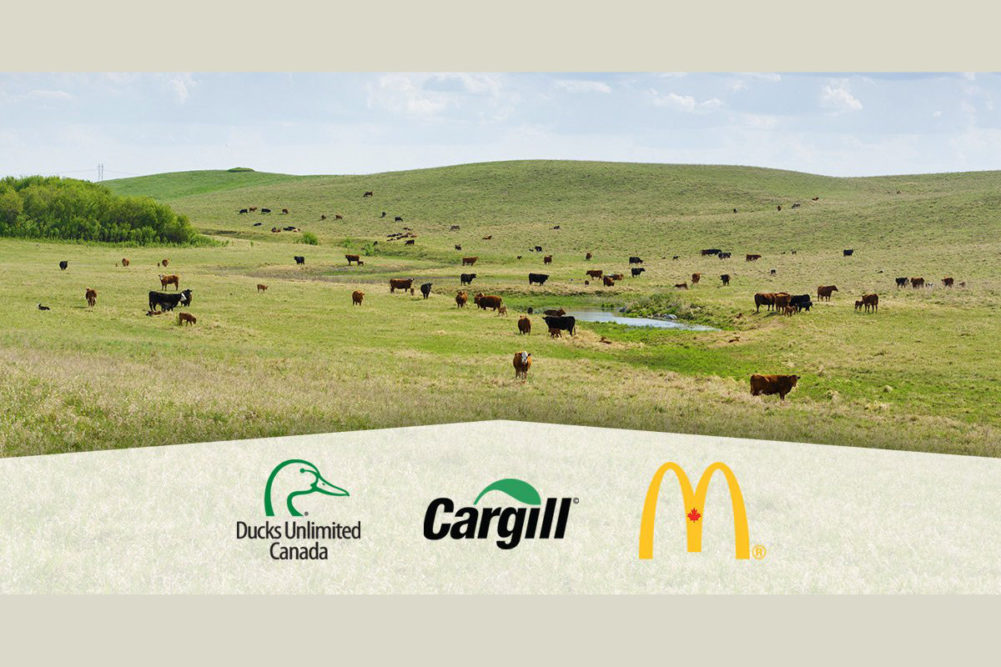WINNIPEG, MANITOBA — In a recent partnership with Ducks Unlimited Canada (DUC), Cargill and McDonald’s Canada will work with beef farmers and ranchers to support a C$5 million Forage Program that works to return 125,000 acres of cropland to grass and pasture by 2025.
The project is an effort to mitigate climate change effects by rehabilitating less productive soil to perennial grass that will remove carbon dioxide from the atmosphere.
The backing from McDonald’s and Cargill allows DUC to offer farmers and ranchers incentives for discounted seed and technical support. This will establish the forage on their land. In return, program participants agree to maintain the forage for 10 years.
“This initiative is an example of how McDonald’s is driving toward our global climate change commitment by supporting beef farmers and ranchers in their efforts to implement practices that reduce greenhouse emissions,” says Nicole Zeni, senior manager, supply chain management, McDonald’s Canada. “Here in Canada, we’ll continue to collaborate with our partners, working together to create change and positive outcomes for farmers, ranchers, communities and the planet.”
These companies are investing C$1.25 million in the Forage Program over the next five years, with DUC adding C$3.75 million through matching programs.
“Through this project, we are partnering with Canadian ranchers to show how cattle are a force for good in conserving this critical ecosystem of soil, grassland and wildlife habitats,” says Heather Tansey, sustainability lead for Cargill’s global protein and animal nutrition and health businesses. “By working hand in hand, we can scale realistic solutions that address sustainability challenges and feed the world.”
This project falls under Cargill’s BeefUp Sustainability, an initiative introduced in 2019 to reduce greenhouse gas emissions across the company’s North American beef supply chain 30% by 2030.

